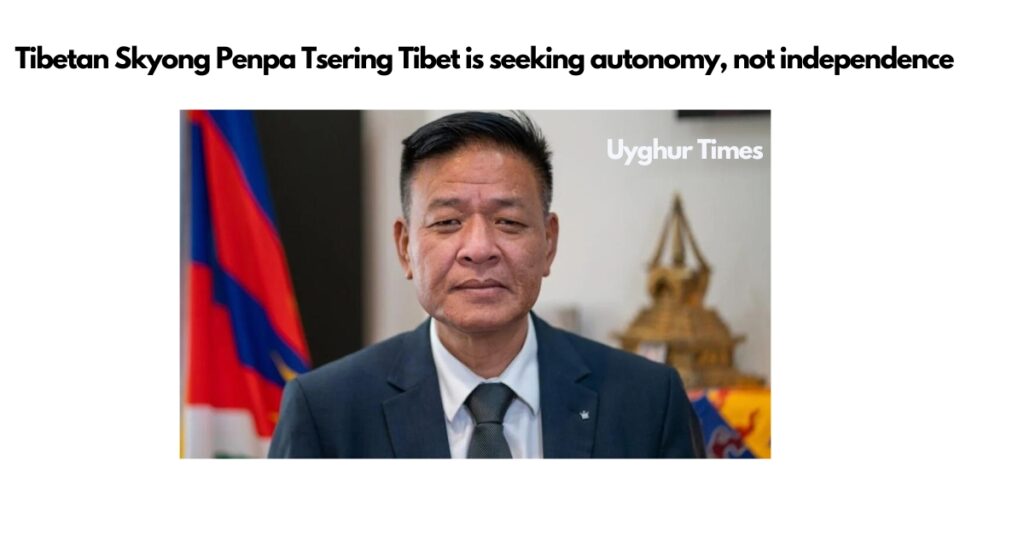By Memet Tursun
In a groundbreaking development, tech firm Ultra has harnessed the power of artificial intelligence to create a tool capable of identifying products potentially derived from forced labor, particularly from the Uyghur population in China. Ultra’s program, Publican, has proven instrumental in scrutinizing the Temu platform and uncovering alarming connections to forced labor practices.
Ram Ben Tzion, the founder and CEO of Ultra, expressed his concerns regarding Temu and its implications for the Forced Labor Prevention Act. “We’re looking at Temu from the perspective of the Forced Labor Prevention Act,” Ben Tzion stated. “How many things that we don’t want are coming into the country using this method, right? The good cases are counterfeit. The worst cases are poor quality.”
On the other hand, as reported by The New York Times, , Chairman Mike Gallagher (R-WI) and Ranking Member Raja Krishnamoorthi (D-IL) of the Select Committee on the Chinese Communist Party released an interim report detailing the preliminary findings of the Select Committee’s bipartisan investigations into Chinese fast fashion brands Shein and Temu. According to a press release by the Committee, the Select Committee initiated initial investigations into Nike, Adidas, Shein, and Temu on May 2nd.
The report delivered a highly critical evaluation of Temu, asserting that there is an “extremely high risk that Temu’s supply chains are contaminated with forced labor.”
As early as July 2021, some environmentalists started to raise alarms over the harm the Shein caused to the environment.
Recognizing the potential for illicit elements to infiltrate the market through Temu, Ben Tzion emphasized the need for accountability. Publican, utilizing vast amounts of shipping data, meticulously analyzes patterns and red flags associated with products that may have fraud issues. Through this process, Ultra discovered that products listed on Temu often had non-indicative names and untraceable company information, raising suspicions about their origins.
To shed further light on this matter, Ultra compared products on Temu with those on the sister platform Pinduoduo in China. Astonishingly, Ultra found that products listed on Temu were sourced from companies located a mere eight miles away from known Uyghur detention centers, euphemistically termed “cultural centers.” This revelation suggests a disturbing link between forced labor practices and the products available on the platform.
Beyond concerns about forced labor, allegations have also surfaced regarding Pinduoduo’s invasive practices. It is alleged that the platform bypasses users’ cellphone security to monitor activities on other apps, check notifications, read private messages, and even change settings. These practices raise significant privacy concerns among users.
Ben Tzion emphasized that the evidence collected by Ultra points to a larger issue of violating trade policies. “My conclusion is that these products are possibly or very likely associated with or linked to shops either from Xinjiang or manufactured in Xinjiang, and that in itself is a violation of trade policies,” he asserted.
Temu and Shein, both Chinese-owned online retailers, sell products made in China worldwide, utilizing advanced and youth-oriented marketing technology, as well as offering cheaper products.
Temu is owned and operated by PDD Holdings, a Chinese-based company registered in the Cayman Islands. PDD Holdings also owns Pinduoduo, a well-known online commerce platform in China. Temu was introduced in the United States in September 2022, and later expanded to Canada in February 2023.
Shein, founded in Nanjing, China in October 2008 as ZZKKO by entrepreneur Chris Xu, Shein, moved to Singapore and grew to become the world’s largest fashion retailer as of 2022.
Speculations have arisen that Temu may serve as a deliberate attempt to bypass the Uyghur Forced Labor Prevention Act (UFLPA), which sets standards to refuse shipments of goods produced or manufactured in the Xinjiang Uyghur Autonomous Region. Launched in 2022 by China-based PDD Holdings Inc., Temu has rapidly gained popularity, boasting over 50 million downloads, including 16 million in 2022 alone. This makes it the second-most used digital marketplace in the United States after Amazon. Temu’s extensive product range encompasses clothing, groceries, and virtually any other imaginable item, all available at remarkably low prices, such as $17 wireless earbuds, $1 “gold” necklaces, and $23 wedding dresses.
Publican’s AI capabilities, combined with robust data analysis, enable Ultra to swiftly examine immense datasets and flag products with questionable pricing, quality, or authenticity. Ben Tzion explained the methodology, stating, “We automatically obtain information from thousands of publicly available digital sources and analyze it, allowing us to determine the nature of every company and every product and to flag more than 160 different fraud patterns.”
While Ultra was founded in 2016, the development of Publican began in 2019, and it was finally released in 2021. The company quickly expanded its operations to the Middle East, Asia, Latin America, Europe, and Africa, successfully flagging products exhibiting fraudulent patterns.
Ben Tzion’s initial suspicions about Temu stemmed from the surprisingly low prices.
The Select Committee report additionally condemned Shein for utilizing an importation method that enables companies to import products into the United States without paying duties and with reduced customs scrutiny, as long as packages are directly shipped to consumers and valued below $800.
Uyghur forced labor and the enslavement of Uyghurs have been integral parts of China’s genocidal policies against the Uyghur population. The Chinese government has a proven record of coercing Uyghurs into slave labor and dispatching thousands of young Uyghur men and women to factory-like prisons throughout China and the Uyghur homeland.
To address this issue, the U.S. has passed the Uyghur Forced Labor Prevention Act, which imposes sanctions on Chinese entities and companies involved in Uyghur forced labor.
